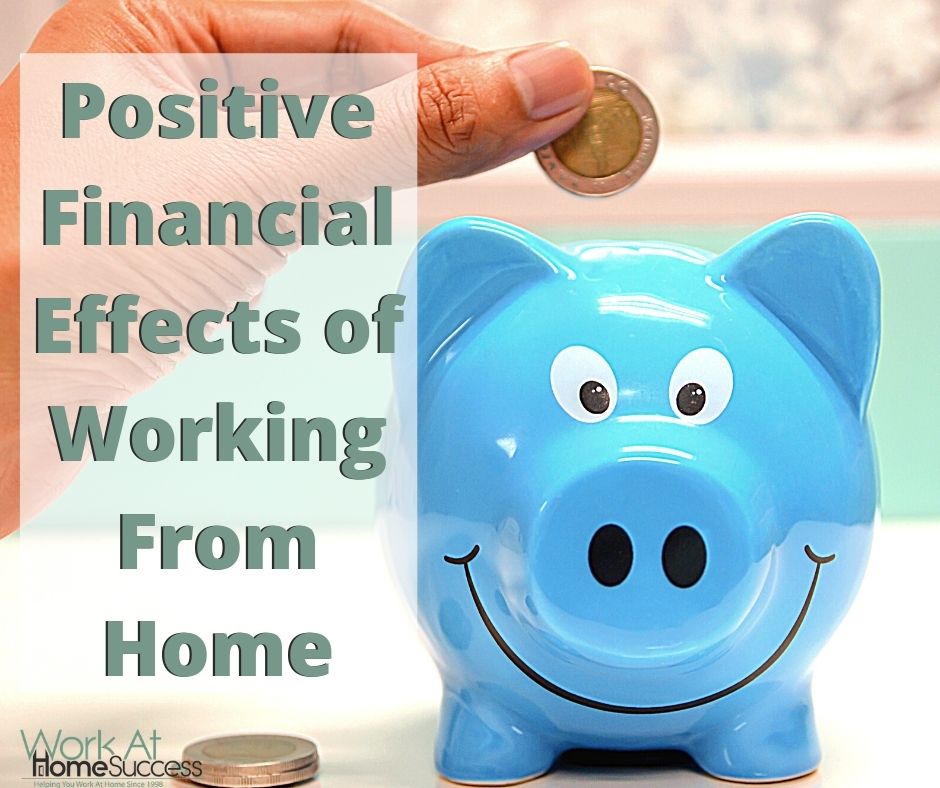Positive Financial Effects of Working From Home
Guest Post: Howie Bick
As the globe has gone into a state of self-isolation and quarantining, much of the business world has shifted to working from home. Many people have seen their meetings, turn into video conference calls, and have had their businesses transfer to online or digital platforms. Depending on if you are considered an essential worker, or not, has been a major factor in whether you’re able to leave your house and go to work. For the many who aren’t considered essential, they’ve had to adapt their work schedules to work from home.
And while many may see this as a difficult time, having to be forced to stay inside for the most part, it’s also come with its share of positive effects. One being the beneficial positive effects it’s had on your wallet. A lot of the expenses that you were used to, have evaporated. Money that was accustomed to leaving your bank account, is now staying put.
Here are ways that working at home saves you money.
Commuting
One of the major expenses people who work outside the home have to deal with is their commute. Whether it’s a train pass, a bus ticket, toll, parking, or gas money, the money people spent to commute adds up, especially when it’s done day after day. As people have begun to work from home, they’ve eliminated the money they’ve spent on these expenses, and have also had more time for themselves as well. A common expression in business, is “time is money.” Well if that’s the case, home-based workers are saving both.
Coffee and Lunch Breaks
As your place of work has changed from an outside location to your home computer, there’s less opportunity to spend money on coffee or lunch breaks. Over an extended period of time, coffee and lunch costs account for a good portion of the money spent. The $5 coffees and the 15$ lunches can take a toll on your pocket when bought day after day, sometimes multiple times a day. At home, you can save money by brewing your cup and eating food from your fridge or pantry.
Dinner and Eating Out
An incredibly pricey and expensive expenditure that most people indulge in on a weekly basis is eating out after work. People who are tired from commuting and working, often to a restaurant or order takeout for dinner. Food prepared at home is nearly always significantly less costly and often offers more food, than dining or ordering out.
Activities and Excursions
The state of quarantine has also canceled events and gatherings you may normally attend. This means spending less money on cover charges, drinks, and miscellaneous expenses when you go out. This reduction in spending puts more money in your pocket and probably forced you to find more creative and less expensive ways to enjoy your downtime.
Turing Time into Money or More Fun
Lack of commute and possibly more productivity from working at home means you have more time for personal pursuits or to start that side hustle you’ve been thinking about. More time on your hands also means more time to learn new skills that can be used to find a new job or simply because you’re interested in the topic. You also have more time with family.
New Found Money
If you now have more money because you’re spending less, now is a great time to take a look at your finances. If the idea of money management, budgeting, and investing makes your head spin, consider hiring an expert like a financial analyst who can look at your money situation and make recommendations on the best way to manage your money so you can have more of it.
Conclusion
This time of quarantine and self-isolation has given people time and money savings. For many, the seriousness of the pandemic has led to self-reflection on what is important in life. How we spend our money is often a representation of our values. As a result, now is a good time to look at your money management, what you’re spending, what you can save, and what you can invest not just in your future, but in your current well-being as well.
Howie Bick is the founder of The Analyst Handbook. The Analyst Handbook is a collection of 16 guides created to help current and aspiring Analysts advance their careers. Prior to founding The Analyst Handbook, Howie was a financial analyst.


Comments are closed.